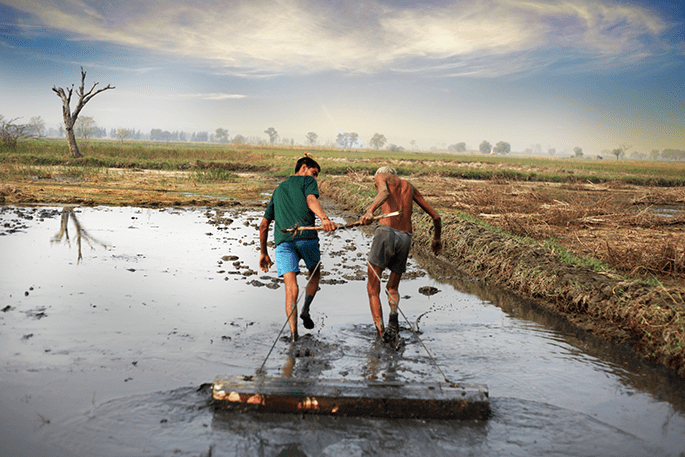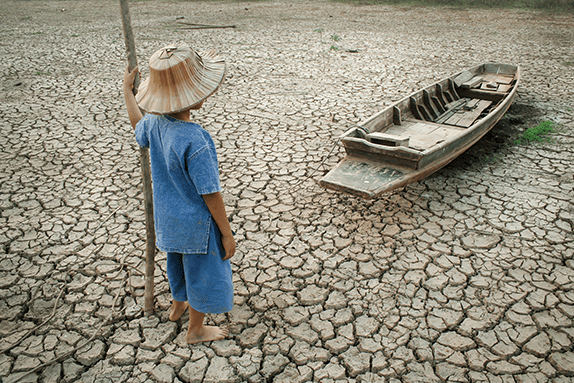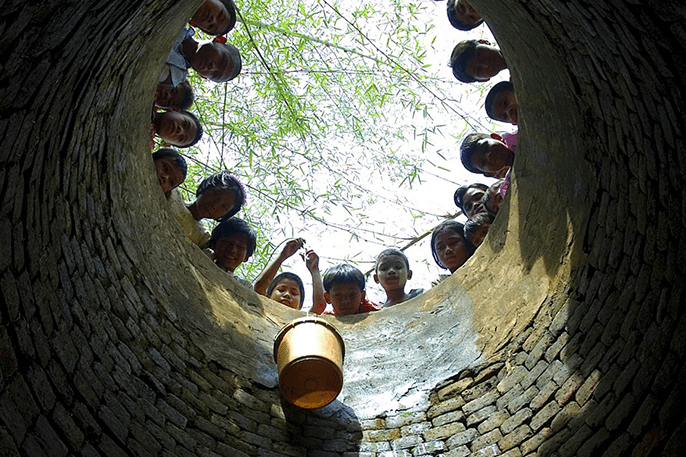About Blue Peace
We are facing a global water crisis and under current trends demand for water could exceed supply by 40% in 2030. Cooperation over water resources could be the solution.
We are facing a global water crisis and under current trends demand for water could exceed supply by 40% in 2030. Cooperation over water resources could be the solution.
Freshwater plays an indispensable role in agriculture, fishery, industrial production, energy generation, transport, human survival and the functioning of virtually all ecosystems.
Yet freshwater is a scarce resource. Only 3% of the world’s water is freshwater and more than 2/3 of it is frozen as snow and ice. Groundwater aquifers account for 31% of all freshwater with lakes, rivers, reservoirs making up less than 0.3% of freshwater resources.


Almost 40% of the world’s population live in river basins that depend on shared waters.
Almost 75% of countries share surface water (rivers, lakes) or aquifers. There are over 200 transboundary lakes and rivers and over 350 transboundary aquifers globally.
These transboundary resources account for over 60% of the global freshwater used for human consumption, food production, industrial use and energy generation, to name a few.
30% of people around the world, about 2.1 billion people, lack access to safe drinking water and 60% of the world’s population, or 4.5 billion people, lack access to adequate sanitation. The global economy loses $260 billion each year due to a lack of basic water and sanitation.
Today, over 50% of people on the planet live in an area that is water-scarce at least one month per year.
Under current trends, demand for water will exceed supply by 40% in 2030.
Lack of freshwater and resulting water crises are considered one of the top five long-term threats to our planet according to the World Economic Forum Global Risk Ranking.
Water-related risks are estimated to cost the global economy more than USD 500 billion per year.
Increased water scarcity is predicted to lead to the forced migration of up to 700 million people from arid and semi-arid areas in the coming decades, stoking tensions between countries.


Any two countries engaged in active water cooperation do not go to war for any reason.
Since 1948, 295 international water agreements were negotiated and signed, resulting in less than 40 incidents of acute conflict over water in the past 71 years.
Yet only 1/3 of the world’s transboundary surface waters (rivers and lakes) and less than 1% of the transboundary aquifers have cooperation mechanisms in place.
Evidence indicates that equitable and sustainable management of transboundary water resources can lead to peace, sustainable development and prosperity.
Download the full report of the Global High-Level Panel on Water and Peace, "A Matter of Survival"